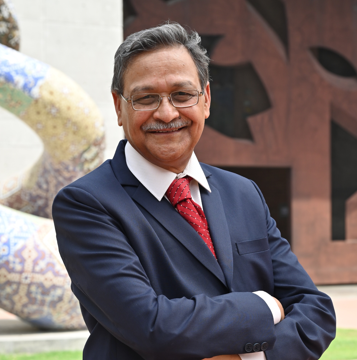
The Centre’s vision is to take its place as a thought leader, guiding India, Asia, and the world as digitalization rapidly penetrates every area of life. The Centre’s mission is to help the country and world develop skill sets that bring about responsible digital transformation to guide organizations as they transform and are transformed by digitalization, to inform policy-makers as they confront new challenges
The Centre focuses on
Extensive research forms the bedrock for change. At CDT our primary goal is to engage in conducting and catalyzing cutting-edge research that may feature as research publications, white papers, and research reports. The centre may help provide data for external research, offer expertise in various streams. The centre is partnering with renowned scholars across the world who are being intricately involved in mentoring the research work. Please write to us if you may be keen.
Executive Committee Members
Research Spotlight
Research Publication
The Centre of Digital Transformation focuses on activities that enhance an understanding of the digital ecosystem and the impact of digital transformation and innovations.
It catalyzes leadership and it leverages its expertise in research and development of strategy, economics, information systems, and digital innovations.
Specifically, it pursues initiatives and partnerships in the social and public domains and promotes digital skill development, implementation for smart cities, and Swachh Bharat missions
Key activities include:
Talks and Discussion series
Focused on tapping the intelligence of eminent professionals, faculty, and social leaders, the talks and discussion series intends
to create and disseminate insightful video talks and discussions, and
to discuss issues related to the responsible use of advanced technologies, such as the Artificially Intelligent (AI) technologies
Debates/Workshops/Knowledge Roundup
The CDT invites media and industry leaders to participate in debates, workshops and knowledge roundups that take up contemporary topics shaping our work and world.
Research Conference on Digital Transformation
The Centre’s annual Digital Transformation Conference brings together leading academics from all over the world to present their research and discuss emerging issues. In addition, the CDT organizes smaller gatherings throughout the year.

Prof. Pankaj Setia
(Founding chair) Professor of Information Systems and Strategy

Mr. Aditya Bhasin
(Co-chair) Chief Technology and Information Officer, Bank of America

Prof Bharat Bhasker
Director, Indian Institute of Management Ahmedabad (IIMA)

Madhuri Deshpande
SVP, Global Business Services Executive, Bank of America

Prof. Debjit Roy
The IIMA Chair Professor and Professor of Operations and Decision Sciences

Prof. Ramayya Krishnan
Dean, Heinz College of Information Systems and Public Policy, Carnegie Mellon University

William Polk Carey Distinguished Professor
Co-Director, Center for Digital Health and Artificial Intelligence (CDHAI)
Carey Business School, John Hopkins University

ex-President of NASSCOM

ex-CEO & MD, Tata Consultancy Services

Co-founder & Non-Executive Chairman, Infosys

Senior Advisor, The Carlyle Group

Albert O. Nicholas Dean of the Wisconsin School of Business of the University of Wisconsin–Madison
Centre for Digital Transformation

Chairperson
| Name | Designation |
|
Prof. Pankaj Setia |
(Founding chair) The IIMA Chair Professor and Professor of Information Systems, IIMA |
|
Mr. Aditya Bhasin |
(Co-chair) Chief Technology and Information Officer, Bank of America |
|
Prof. Errol D'Souza |
Director, Indian Institute of Management Ahmedabad (IIMA) |
|
Madhuri Deshpande |
SVP, Global Business Services Executive, Bank of America |
|
Prof. Debjit Roy |
The IIMA Chair Professor and Professor of Operations Management, IIMA |
|
Prof. Ramayya Krishnan |
Dean, Heinz College of Information Systems and Public Policy, Carnegie Mellon University |

(Founding chair) The IIMA Chair Professor and Professor of Information Systems, IIMA

(Co-chair) Chief Technology and Information Officer, Bank of America

Director, Indian Institute of Management Ahmedabad (IIMA)

SVP, Global Business Services Executive, Bank of America

The IIMA Chair Professor and Professor of Operations Management, IIMA

Dean, Heinz College of Information Systems and Public Policy, Carnegie Mellon University
